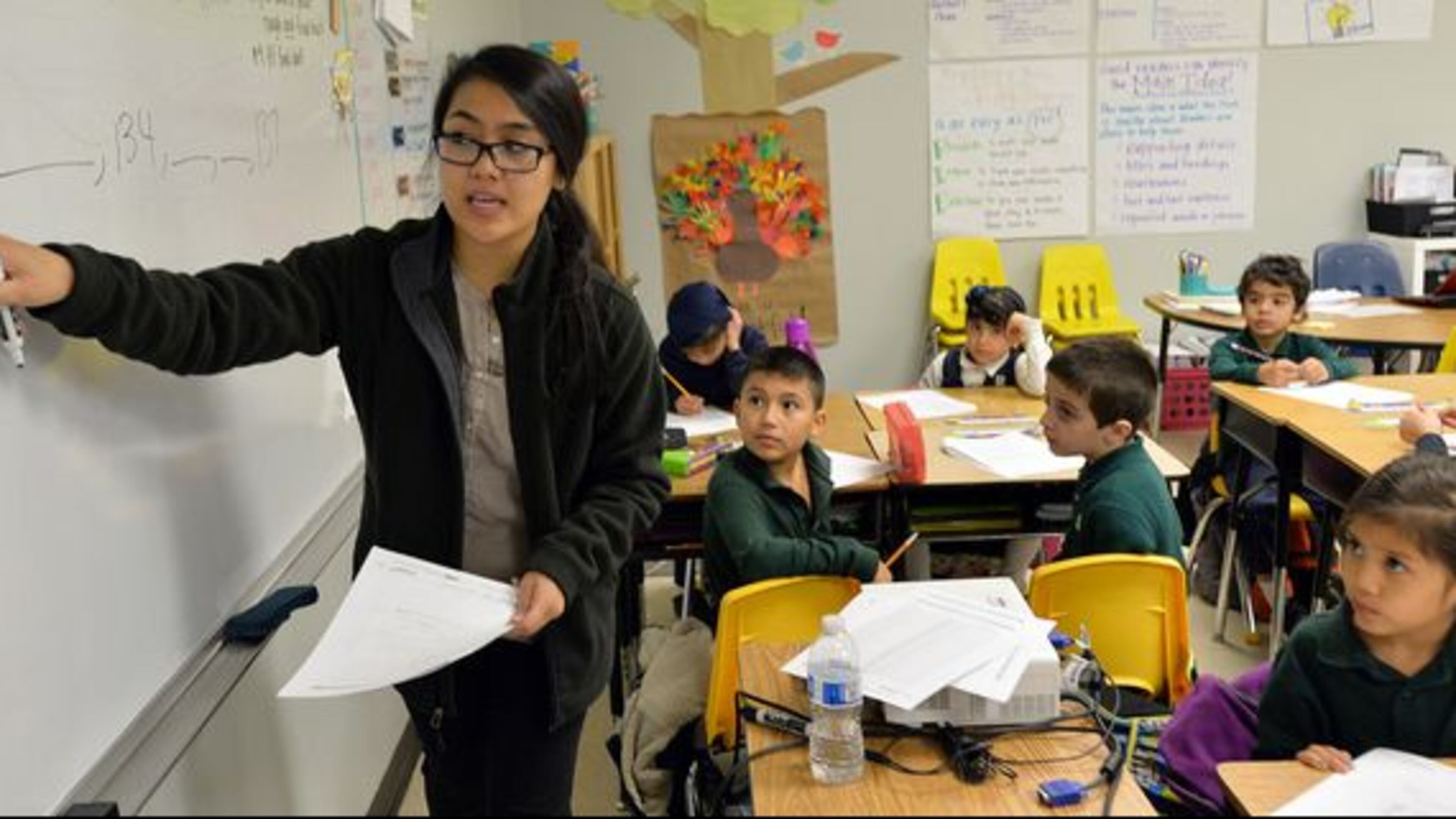Georgia teachers should expect a 'significant' step toward merit pay next year

Gov. Nathan Deal said he's poised to ask lawmakers to make a "significant" step toward tying the teachers' pay toward their performance in the classroom, setting up a showdown with educators' groups who have long opposed the policy.
Georgia policymakers have flirted for years with the of merit pay for teachers, and more than two dozen school districts have received money from the state’s $400 million federal Race to the Top grant that rewards teachers on their performance.
But more comprehensive changes have stalled by critics who question, among other aspects, how teachers will be evaluated and how the pay increases would be funded. A Professional Association of Georgia Educators leader once said merit pay boosters of having "champagne dreams on beer budgets."
Deal, though, said Friday he's willing to pick a fight with teachers groups. He said he plans to endorse merit pay as part of a broader education overhaul from a reform commission he tapped to recommend changes to how Georgia educates its students and divvies up money between 180 school districts.
“We’re not going to go to a fully merit-based pay system, but I do think there is a portion of the teachers’ pay should go to how good a teacher they are,” Deal said after a policy conference on Friday. “Now, getting the education community to support that is sometimes difficult.”
That's something of an understatement. Our AJC colleague Ty Tagami notes the governor's Education Reform Commission made merit pay one of its top recommendations despite numerous meetings with teachers who didn't mention it as a priority.
From Tagami:
Sid Chapman, president of the Georgia Association of Educators, complained after the commission issued its recommendations that there were no currently working teachers on the panel.
He said Georgia needs to listen to them and address their grievances because he routinely hears from veteran educators who are discouraging young people from entering the field and are looking for ways to retire early, even if it means a reduced income. "All I hear is 'I want out as soon as I can get out,'" he said.
Most school districts in Georgia and nationally pay teachers based on how long they've been teaching and degrees they've earned. Their salaries rise according to a fixed schedule that specifies minimum pay, though some districts pay above that.
That forces some teachers looking for bigger pay bumps to move into administration roles, Deal said.
The challenge ahead is coming up with a metric that satisfies skeptical educators groups and policymakers. Teachers advocates often question the reliability and rigor of, say, using test scores or other factors to determine a teacher’s salary.
“We want it to be an objective assessment,” said Deal. “Much of it has to, of course, be subjective. We think there’s a way to do it, and we’re going to try to move it along the road. We’re not going to get as far as perhaps some would like for us to go, but we think the first step is significant.”

